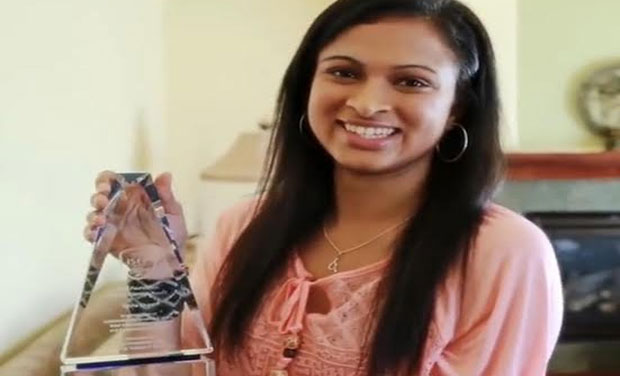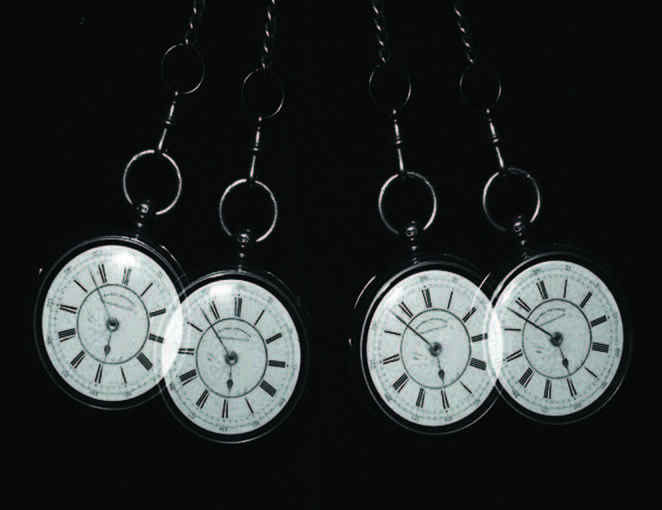
The days of frequent phone recharges may soon be over, if an award-winning experiment by Indian-American teenager, translates successfully to commercial production.
Saratoga, California-based Eesha Khare, then 18, won the $50,000 Young Scientist prize at the 2013 Intel International Science and Engineering Fair, for developing a Super Capacitor that recharges phone batteries in less than a minute and allows 10 times as many recharge cycles. Her device made of carbon nano-fibres and metal oxides, has to be fitted inside cell phone batteries.
Daughter of an engineer and a biologist, Eesha has been fascinated by science for her entire life. This mobile device quandary was just the kind of challenge she’d been seeking—one that would allow her to stretch her brain, to fully utilize the computation power of her technology, and to address an issue that would serve millions of people just like her.
Eesha is the developer of a supercapacitor energy storage device, a carbon fiber with different metal oxides—primarily titanium dioxide and polyaniline—that uses nanotechnology to maximize the device’s surface area. It charges mobile devices much faster than previous technology has allowed, and has the ability to charge for many more cycles. Her innovation could be harnessed to charge more than cell phones and tablets; down the line, it could potentially energize cars. In the meantime: “My goal is to have a supercapacitor charge a mobile device in less than a minute.”
Her high school teacher says Eesha showed the academic rigour of a PhD student in her work on the battery project. Eesha is now using her prize money to finance her studies at Harvard and to improve her invention before it can be offered for mass production.





Be the first to comment